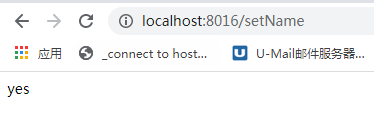1.pom.xml
|
1
2
3
4
5
|
<!-- Ehcache 坐标 --><dependency> <groupId>net.sf.ehcache</groupId> <artifactId>ehcache</artifactId></dependency> |
2.ehcache.xml
|
1
2
3
4
5
6
7
8
9
10
11
12
13
14
15
16
17
18
19
20
21
22
23
24
25
26
27
28
29
30
|
<?xml version="1.0" encoding="UTF-8"?><ehcache> <diskStore path="java.io.tmpdir"/> <!--defaultCache:echcache的默认缓存策略 --> <defaultCache maxElementsInMemory="10000" eternal="false" timeToIdleSeconds="120" timeToLiveSeconds="120" maxElementsOnDisk="10000000" diskExpiryThreadIntervalSeconds="120" memoryStoreEvictionPolicy="LRU"> <persistence strategy="localTempSwap"/> </defaultCache> <!-- maxElementsInMemory设置成1,overflowToDisk设置成true,只要有一个缓存元素,就直接存到硬盘上去 eternal设置成true,代表对象永久有效 maxElementsOnDisk设置成0 表示硬盘中最大缓存对象数无限大 diskPersistent设置成true表示缓存虚拟机重启期数据 --> <cache name="usercache" maxElementsInMemory="1" eternal="true" overflowToDisk="true" maxElementsOnDisk="0" diskPersistent="true"><!-- <persistence strategy="localTempSwap"/>--> <!--不能和diskPersistent 同时存在--> </cache> |
diskStore是物理文件的存储路径,
cache标签中的name是多cache时区分的唯一标识, 和程序中初始化方法getCache("***")参数一致。<br>缓存参数和本地数据持久化存储需自行配置
3.application.yml
|
1
2
3
4
|
spring: cache: ehcache: config: classpath:/ehcache.xml |
4.启动类添加
@EnableCaching
|
1
2
3
4
5
6
7
8
9
10
11
12
13
14
|
import org.mybatis.spring.annotation.MapperScan;import org.springframework.boot.SpringApplication;import org.springframework.boot.autoconfigure.SpringBootApplication;import org.springframework.cache.annotation.EnableCaching; @EnableCaching@SpringBootApplicationpublic class DemoApplication { public static void main(String[] args) { SpringApplication.run(DemoApplication.class, args); } } |
5.springcloud 中使用cache
|
1
2
3
4
5
6
7
8
9
10
11
12
13
14
15
16
17
18
19
20
21
22
23
24
25
26
27
28
29
30
31
32
33
34
35
36
37
38
39
40
41
42
43
44
45
46
47
48
49
50
51
52
53
54
55
56
57
58
59
60
61
62
63
64
65
|
import net.sf.ehcache.Cache;import net.sf.ehcache.CacheManager;import net.sf.ehcache.Element;import org.springframework.beans.factory.annotation.Autowired;import org.springframework.core.io.ClassPathResource;import org.springframework.stereotype.Component; import java.io.IOException; /** * @Author: Peacock__ * @Date: 2019/6/14 17:30 */@Componentpublic class CacheService { @Autowired private CacheManager cacheManager; /** * 从缓存中获取数据 * @return * @throws IOException */ public String getCache() throws IOException { String res = ""; Cache cache = cacheManager.getCache("usercache"); if(cache != null){ Element element = cache.get("name"); if(element != null){ Object objectValue = element.getObjectValue(); res = (String) objectValue; } } return res; } /** * 数据存入缓存 * @param data * @throws IOException */ public void putCache(String data) throws IOException { //若cacheManager被关闭,则重新创建 if(cacheManager == null || cacheManager.getStatus().intValue() != 1){ cacheManager = new CacheManager(new ClassPathResource("ehcache.xml").getInputStream()); } Cache cache = cacheManager.getCache("usercache"); //处理成要缓存的数据 //存入缓存(注意:需要保证存入缓存的数据都是可序列化的) cache.put(new Element("name", data)); /** * ehcache和其它缓存类似,需要flush或shutdown后才会持久化到磁盘。 * 会生成.data 的数据文件和 .index 的索引文件,方便重启恢复。 * ehcache恢复数据是根据.index索引文件来进行数据恢复的。 * 当程序再次启动的时候,ehcache的一个方法会将.data文件和.index文件的修改时间进行比较,如果不符合直接将.index文件删除。 */ //将所有缓存项从内存刷新到磁盘存储,并从DiskStore刷新到磁盘。// cache.flush(); //更新.index文件// cacheManager.shutdown(); }} |
6.controller层
|
1
2
3
4
5
6
7
8
9
10
11
12
13
14
15
16
17
18
19
20
21
22
23
24
25
26
27
28
29
30
31
|
import java.io.IOException; @RestControllerpublic class AppController{ @Autowired private CacheService cacheService; @RequestMapping("/setName") public String setName() { try { cacheService.putCache( "heshan"); } catch (IOException e) { e.printStackTrace(); } return "yes"; } @RequestMapping("/getName") public String getName() { String res = null; try { res = cacheService.getCache( ); } catch (IOException e) { e.printStackTrace(); } return res; }} |
结果:


以上就是本文的全部内容,希望对大家的学习有所帮助,也希望大家多多支持服务器之家。
















